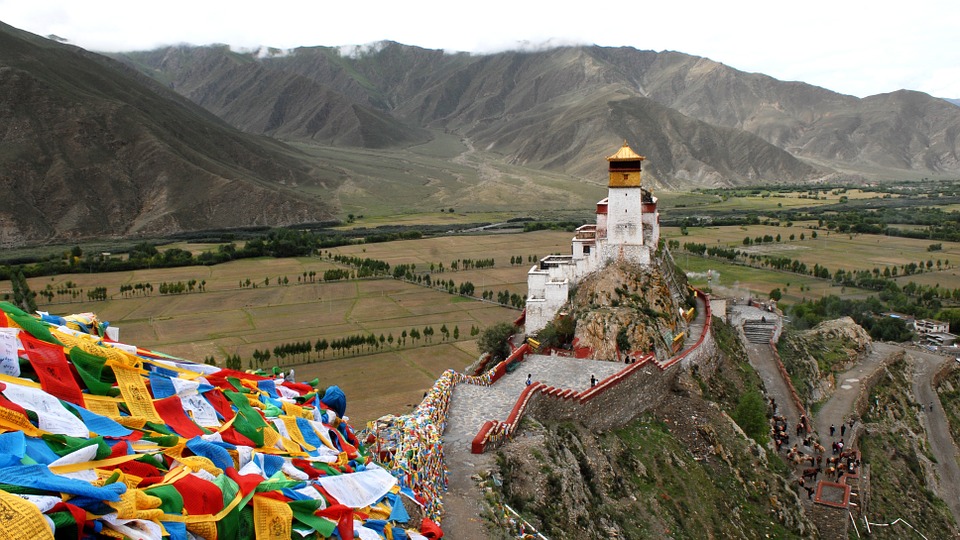Case:
Two monks argued about a temple flag waving in the breeze.
One said, “It is the flag that moves.”
The other said, “It is the breeze moving.”
Just then, Hui-neng appeared saying, “Not the flag; not the wind; it is the mind that moves.”
What foolishness is Hui-neng trying to pull?
Pointer:
Hui-neng was the sixth patriarch of Zen and perceived buddha-mind.
Hui-neng understood the unfathomable truth – that two monks were not standing there arguing about a flag moving in the wind.
Where is the wind?
Where is the flag?
The universe is void.
No dust landing on what mirror.
Hui-neng’s abode is clean.
Discussion:
Zenists often say, “The universe is void or empty.” However, in this context void does not mean a vacuum and empty mean nothing.
The universe is filled with Buddha-mind or buddha-nature. Sometimes we call this Big Mind or Infinite Mind as opposed to Finite Mind or Everyday Mind.
 Mind and nature are words that point to a universal reality that is dynamic and moves in relationship mode – never independently. All elements in the universe are aspects of that which is greater than they are; buddha-mind.
Mind and nature are words that point to a universal reality that is dynamic and moves in relationship mode – never independently. All elements in the universe are aspects of that which is greater than they are; buddha-mind.
It is said that a mountain is not a mountain. Then again, that is exactly what it is. We do not mean that the mountain does not exist, only that it is more than it may appear to be. Looked at through buddha-mind a mountain is an aspect of the wholistic and universal relationship of all that was and is, and contains all that will be. If the ecology of the mountain fails, animals and insects may find themselves without a home, or food, and will ultimately become extinct. Plants and flowers will disappear. Although the mountain may be in Tibet, a dying patient in a Los Angeles hospital may not be able to receive needed medicine that science manufactured from a particular species of flower available thousands of miles away on that mountain. The ecology of that mountain is tied into a relationship with time, distance, and human mortality.
Certainly, Zen koans are seemingly paradoxical, semantic games. Yet they are not to be taken lightly. The reality stakes here are profound. It is important that we understand the critical forces at work in the void of buddha-nature, and it is through Buddha-mind that we come to a conscious awareness of the empty universe that we are an aspect of and that sustains us. Zen can teach us the power we have to affect our individual destiny and the destiny of our universe.
The wind, a flag, a mirror, some dust, all exist as we exist, but only as aspects of that which is greater. And, that which is greater exists within us.
Resolution:
In the autumn, the sixth patriarch, Hui-neng saw the two monks pausing at their sweeping work to watch a flock of geese flying south. “The geese are graceful in flight,” Hui-neng said.
“What geese?” the monks asked. “It is the mind that flies.”
“Gentlemen, you may have been sweeping, but it is clear you have not been dusting mirrors.”





